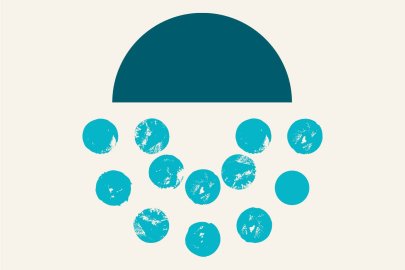
Octobre 2024 à juin 2025
Kaustav Chakraborty was born in the state of West Bengal in India. His hometown is Jalpaiguri. He has completed his Ph D from the University of North Bengal. He has joined Loreto College, Darjeeling, as an Assistant Professor in 2006 and currently he is an Associate Professor in the Department of English at Southfield College, Darjeeling.
He has been a Fellow at Indian Institute of Advanced Study, Shimla. He has completed two major research projects: the first project has focused on the cultures of the Hijra Community in India; and the other one has been a study of the queer possibilities in the oral tradition of the indigenous communities of North Bengal and Northeast India. He has also undertaken a transnational collaborative project of translating the short stories of the great Bengali writer, Nazrul Islam, into English.
Kaustav Chakraborty has published articles, books and edited volumes on a range of subjects like Indian Drama, nationalism in the works of Rabindranath Tagore, queer desires in tribal folktales, vernacular queer writings from India, Himalayan literature, etc. His areas of interest include Queer Studies, Indigenous Literatures and Cultures, Folklore, Culture of Nationalisms, Philosophy of Intimacy, and South Asian Literatures
Indigenous People‘s History of Ecomasculinity in India
This research aims at tracing the history of ecomasculinity by revisiting the folktales of the select indigenous communities of India.
This project would underscore how the indigenous folktales, from North Bengal and the states of Northeast India, as oral histories reveal the alternative ecomasculinity as opposed to the ‗mainstream‘ hegemonic masculinity which has been critiqued by the feminists in general, and the ecofeminists in particular. Threats to vulnerable ecosystems has been seen as the man-induced negative climatic changes resulting from the muscular mode of operation of the state, corporate and other structures of power and inequality such as the patriarchal hegemonic masculinity. Hegemonic ‗mainstream‘ masculinity is guided by the impulse to ‗win‘, ‗subjugate‘, and ‗dominate‘—be it women, nature or over one‘s own body—with an instinct of ‗daring‘ as opposed to the ethos of ‗caring‘ which is often projected as the essential attribute of the feminine. The hypermasculine culture perceives ‗caring‘ as a threat and solely cares for domination which gets manifested in various incidents of violence instigated against the religious minorities, sexual minorities, Dalits and women. Hence, it is important to bring the alternative masculine culture of the indigenous eco-men out of the ‗waiting rooms of history‘ in order to provide a counter model of the caring men — who care for nurturing the nature and the qualities that are perceived as feminine.
CHAKRABORTY, Kaustav. Nations and Nationalisms: A Short Introduction, Hyderabad, Orient BlackSwan, 2021.
CHAKRABORTY, Kaustav. Queering Tribal Folktales of East and Northeast India, London and New York, Routledge, 2020.
CHAKRABORTY, Kaustav. The Politics of Belonging in Contemporary India: Anxiety and Intimacy, London and New York, Routledge, 2020.
CHAKRABORTY, Kaustav. - Radical Grace: Hymning of ‗Womanhood‘ in Therigatha‖, Feminist Theology, Volume 26, Issue 2, January 2018, 160-170 p.
CHAKRABORTY, Kaustav. - Pollution Complex‘, Tagore and the Tabooed Nation: Revisiting the Select Short Stories", in Tagore and Nationalism, edited by K.L. Tuteja and Kaustav Chakraborty, New Delhi and Shimla, Springer and IIAS, 2017, 171-184 p.



